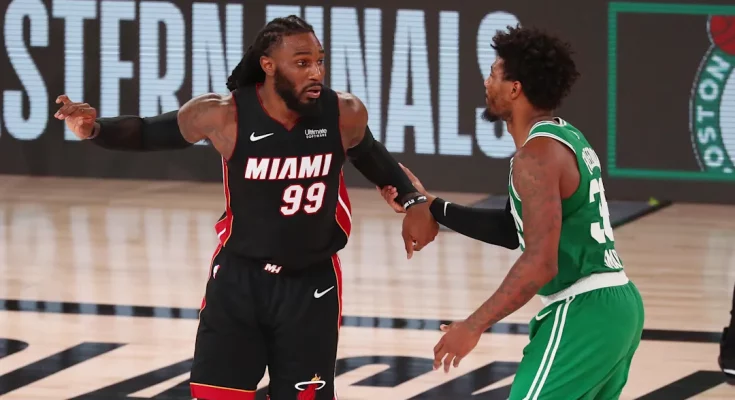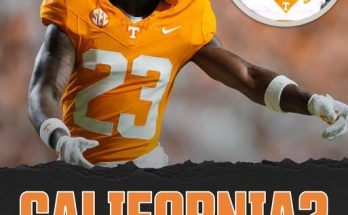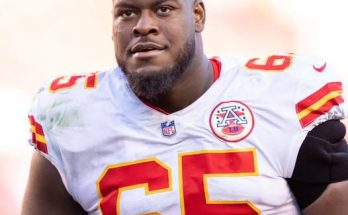The Boston Celtics, fresh off a championship season that restored their place atop the NBA hierarchy, now find themselves facing a flurry of decisions that could reshape the future of the franchise. While banners hang and confetti still lingers in memories, the reality of the NBA offseason is setting in with full force. What seemed like a moment of pure celebration has swiftly transitioned into a whirlwind of rumors, tough choices, and external interest in the very core of what made Boston dominant this past year. Among the pressing developments are reports that a former Celtics player could be considering retirement, whispers that the Lakers are targeting yet another key member of Boston’s current roster, and mounting speculation that Brad Stevens isn’t done on the trade front. The drama is brewing quietly beneath the surface, but its impact could soon be seismic.
The most sentimental and perhaps under-the-radar storyline developing is the potential retirement of a former Celtic who, while not a current player on the roster, remains deeply respected in the locker room and among fans. Al Horford, a veteran presence and a cerebral big man who was instrumental in shaping the Celtics’ culture, has reportedly begun seriously contemplating retirement. Horford’s influence extended far beyond the stat sheet—he was a mentor, a defensive anchor, and a voice of reason in high-pressure situations. While Horford returned for another run and even contributed valuable minutes during the playoffs, sources close to the organization suggest that his body may no longer be able to withstand the rigors of another full NBA campaign. It’s not just about physical wear and tear, either—Horford has accomplished almost everything a team-oriented player could ask for. He helped Boston reach the NBA Finals in 2022, secured the championship in 2024, and did it all with class and consistency. If he walks away now, he does so having left a mark on one of the league’s proudest franchises.
But while one door may be closing, others seem to be opening—and not necessarily in the Celtics’ favor. The Lakers, never ones to sit still when it comes to reshaping their roster, have reportedly turned their attention toward another Celtics star. After already being linked to multiple high-profile targets over the summer, Los Angeles is now said to be monitoring the situation surrounding Derrick White closely. White, a breakout two-way guard who proved to be a clutch performer during Boston’s title run, would be a massive loss if he were pried away via trade or a future free agency push. The Lakers are clearly looking for a guard who can defend at an elite level, shoot efficiently from deep, and serve as a secondary playmaker alongside LeBron James or his eventual successor. White checks all those boxes. What makes this development more concerning for Boston is that Los Angeles has recently cleared some cap flexibility and is stockpiling assets—moves that are rarely coincidental. While White is under contract and there’s no indication Boston is actively shopping him, the NBA’s power dynamics often revolve around whispers, pressure, and long-term strategy. If the Lakers keep circling, the Celtics will be forced to defend their roster off the court as fiercely as they did on it.
Then comes the third—and potentially most unpredictable—element of this emerging saga: additional trades. Brad Stevens, widely praised for his transformation from head coach to front office mastermind, has not given any indication that he considers the 2024 championship roster untouchable. In fact, insiders suggest that Stevens is actively evaluating opportunities to tweak the rotation, particularly in terms of bench depth and future flexibility. The trade that brought in Kristaps Porziņģis was a bold, calculated risk that paid off handsomely. Similarly, the acquisition of Jrue Holiday mid-season stunned the league and cemented Boston as a title favorite. Now, Stevens may be eyeing another move—not out of desperation but out of a desire to stay ahead of the curve. With teams like Milwaukee, Denver, and Oklahoma City making serious improvements this offseason, Boston cannot afford to rest on its laurels.
One name that keeps resurfacing in trade rumors is Payton Pritchard. Despite showing flashes of brilliance and offering energy off the bench, Pritchard’s role has been somewhat inconsistent, and there’s a sense he could be moved in a package for a more established wing or versatile big. Another potential piece in play is Sam Hauser, who has proven to be a knockdown shooter but may not offer enough defensively in playoff scenarios. Teams in need of spacing and sharpshooting have reportedly inquired about his availability. If Boston chooses to pull the trigger on a trade, it would likely be with the goal of adding a bigger, switchable wing who can defend multiple positions or a veteran backup center to ease the minutes burden on Porziņģis and possibly Horford—should he return for one more ride.
Stevens is also believed to be monitoring the disgruntled-star market closely. The Celtics, though flush with top-end talent, know the NBA landscape can shift quickly, and having the assets to pounce on a suddenly available All-Star is part of any championship contender’s playbook. While no major names have been directly linked to Boston just yet, executives around the league know better than to dismiss the Celtics as passive players. With a combination of young talent, draft capital, and expiring contracts, Boston remains well-equipped to make another major move—if the right opportunity arises.
Another subtle but important storyline involves the development of younger players like Jordan Walsh and JD Davison. The Celtics have been patient with their growth, and both players have shown enough upside to warrant a longer look. Depending on how they perform in Summer League and training camp, they could either earn rotation minutes or become valuable trade chips. Walsh, in particular, offers defensive versatility and a high motor that fits the Celtics’ DNA. If Stevens decides to go younger in certain bench spots, these prospects might be part of the calculus, potentially freeing up cap space or creating opportunities for internal development.
Of course, all of these moving pieces exist under the shadow of Jayson Tatum and Jaylen Brown. The dynamic duo remains the engine that drives Boston’s championship aspirations, and any moves Stevens makes will be centered around optimizing their primes. Tatum’s recent injury and recovery updates have been promising, suggesting he’ll be ready for training camp. Meanwhile, Brown continues to evolve, silencing critics with his Finals MVP performance and becoming a more vocal leader within the organization. Their presence gives Boston a high floor, but the ceiling depends on the supporting cast remaining elite and adaptable.
Ownership also plays a role in the direction of the franchise. Wyc Grousbeck has been outspoken about his commitment to winning and spending whatever is necessary to maintain title contention. That level of support gives Stevens latitude to make bold moves without fear of financial pushback. However, the looming threat of the second apron under the new CBA forces even the most committed ownership groups to think long-term. Boston may soon face difficult questions about luxury tax penalties and roster sustainability, especially as new contracts kick in for Holiday and potentially White.
In the midst of all this, Boston fans are reminded of the fragility of NBA dynasties. Winning one title is a triumph; sustaining excellence is a different beast altogether. The Celtics’ front office has shown they can pivot quickly, make tough decisions, and stay ahead of rivals. But with other teams eyeing their talent, veterans considering retirement, and new pressures mounting, the margin for error is shrinking. The 2024-25 season will not be about chasing validation—it will be about defending a crown with precision and poise.
What happens next is anyone’s guess. Maybe Horford announces his retirement and leaves as a champion. Perhaps the Lakers’ interest in White fizzles out, or maybe it intensifies. Brad Stevens might stand pat or strike again with another blockbuster. What’s certain is this: Boston’s championship season was not the final chapter. It was merely the beginning of a new, high-stakes era where every move will be scrutinized, and every decision could tip the balance between back-to-back glory and premature decline. The Celtics are no longer the hunters—they’re the hunted. And in this unforgiving league, standing still is the first step toward falling behind.



